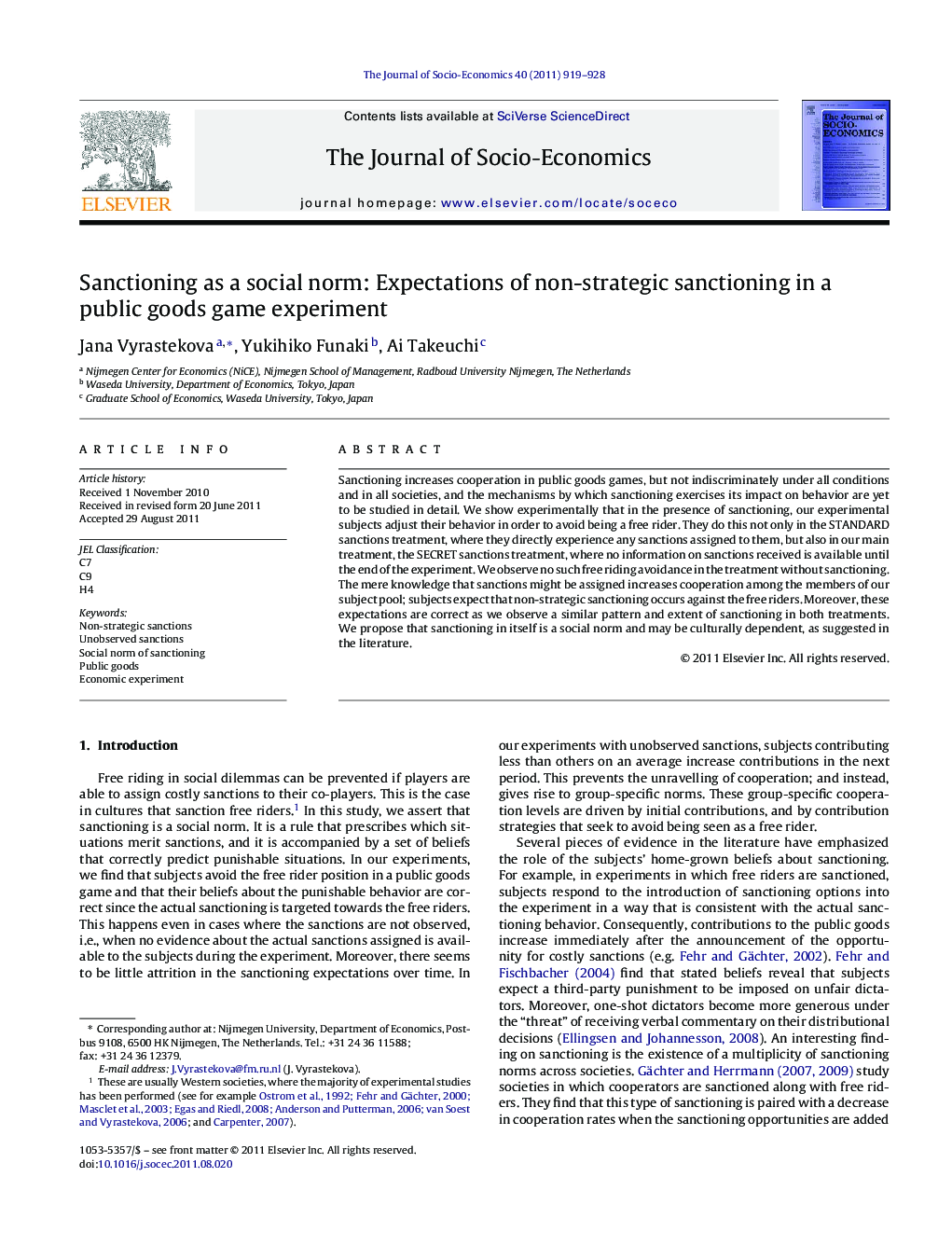| Article ID | Journal | Published Year | Pages | File Type |
|---|---|---|---|---|
| 970090 | The Journal of Socio-Economics | 2011 | 10 Pages |
Sanctioning increases cooperation in public goods games, but not indiscriminately under all conditions and in all societies, and the mechanisms by which sanctioning exercises its impact on behavior are yet to be studied in detail. We show experimentally that in the presence of sanctioning, our experimental subjects adjust their behavior in order to avoid being a free rider. They do this not only in the STANDARD sanctions treatment, where they directly experience any sanctions assigned to them, but also in our main treatment, the SECRET sanctions treatment, where no information on sanctions received is available until the end of the experiment. We observe no such free riding avoidance in the treatment without sanctioning. The mere knowledge that sanctions might be assigned increases cooperation among the members of our subject pool; subjects expect that non-strategic sanctioning occurs against the free riders. Moreover, these expectations are correct as we observe a similar pattern and extent of sanctioning in both treatments. We propose that sanctioning in itself is a social norm and may be culturally dependent, as suggested in the literature.
► Observable as well as unobservable sanctioning increases cooperation in public goods games. ► In the presence of observable or unobservable sanctioning, individuals adjust their behavior in order to avoid being a free rider. ► Observable and unobservable sanctions are used in similar ways to punish free riders. ► Subjects expect that non-strategic sanctioning occurs against the free riders.
